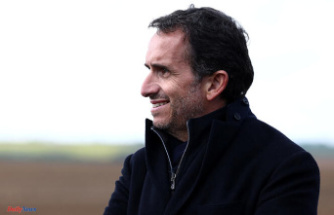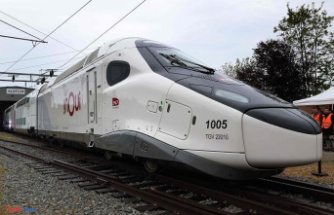Investors shift $83 billion from European equity funds to the US. Because of the Ukraine war and its consequences, the assets seem to be more securely invested there. A bad sign for the local economy.
Money managers appear to be gloomy about economic development in Europe. Investors withdrew 83 billion dollars from European equity funds in the past six months, according to the financial news service Bloomberg, citing Deutsche Bank. The outflows are therefore the largest for at least 15 years. The emigrants include the wealth managers Blackrock and Amundi.
The billions do not flow into other forms of investment, as Stefan Riss, capital market strategist at asset manager Acatis, explains in an interview with ntv.de. "The bottom line is that no funds have flowed out of equity funds worldwide." This is usually different in crises and also the difference from the last time, when a similar amount of money was withdrawn from Europe, in the first half of 2019. Investors are currently leaving the money in shares due to the high inflation rates, but are reallocating them - to the USA. "In the current mixed situation, the USA is more than ever the market that appears to be the safest with the lowest risks," says Risse.
Because in Europe, the Ukraine war is much closer. "If, for example, a nuclear power plant breaks down in the Ukraine, the atomic cloud moves towards us," says Riß. At the beginning of the war, the West even threatened to be drawn into the war. Meanwhile, Europe, especially Germany, is caught in an energy crisis. As a result, prices have risen massively. The US, on the other hand, is not dependent on Russian energy and is much less affected by the rise in energy prices. Investing in American companies seems much more attractive. "Although their shares are more expensive, US companies are growing much faster and are more profitable," explains the capital market strategist.
The large IT companies in particular are based in the USA. "The growth lead of the Americans will continue to increase," predicts Riß. China, for example, is not an alternative for investors: because of the political uncertainties, the strict regulation and now also the Taiwan conflict, even if the capital market strategist does not expect a military attack from China. Germany is unattractive for investors because of its extreme dependence on China.
Although the DAX is currently on the up, it has lost almost six percent in the past six months. "The US stock exchanges are developing much better," clarifies cracks. The tech stocks are currently losing a lot, partly because of the interest rate hike in the USA. "But the impact of interest rates on these companies is less than the market is currently pricing in," says Risse. "Thus the tech giants have little net debt or are even sitting on cash." Meanwhile, the rate hike by the European Central Bank is also becoming a burden, albeit not as much as in the USA. In addition, the weakening euro and the financing of planned energy price caps are a burden.
"2022 could have been the beginning of 'European years'," says the capital market strategist. "But the war threw a spanner in the works." A severe recession is now looming. A lack of gas or the high prices alone could lead to production stoppages. The latter would in turn also affect other sectors due to the subsequent supply bottlenecks. Some companies will even go bankrupt. According to Riss, in addition to the consequences of the war, a further aggravating factor is that right-wing populists could come to power in Italy.
According to Bloomberg, Citigroup strategists are also expecting a whole series of downgrades in the coming months, while Morgan Stanley is warning of the sharpest decline in profit margins in more than a decade. Cracks says: "Now you have to look further at the course of the war, the uncertainty remains high." One of the big questions is how the energy markets will continue to develop.
In the eyes of the capital market strategist, Europe is exceptionally "welcomely united" in relation to the Ukraine war. Such unity is also urgently needed in other areas. "Otherwise we are not prepared for the international competition, the great challenges such as China's new Silk Road."
In the longer term, a functioning capital market is also important for financing European companies. Otherwise, another problem for Europe's economic development could arise in the long term.












